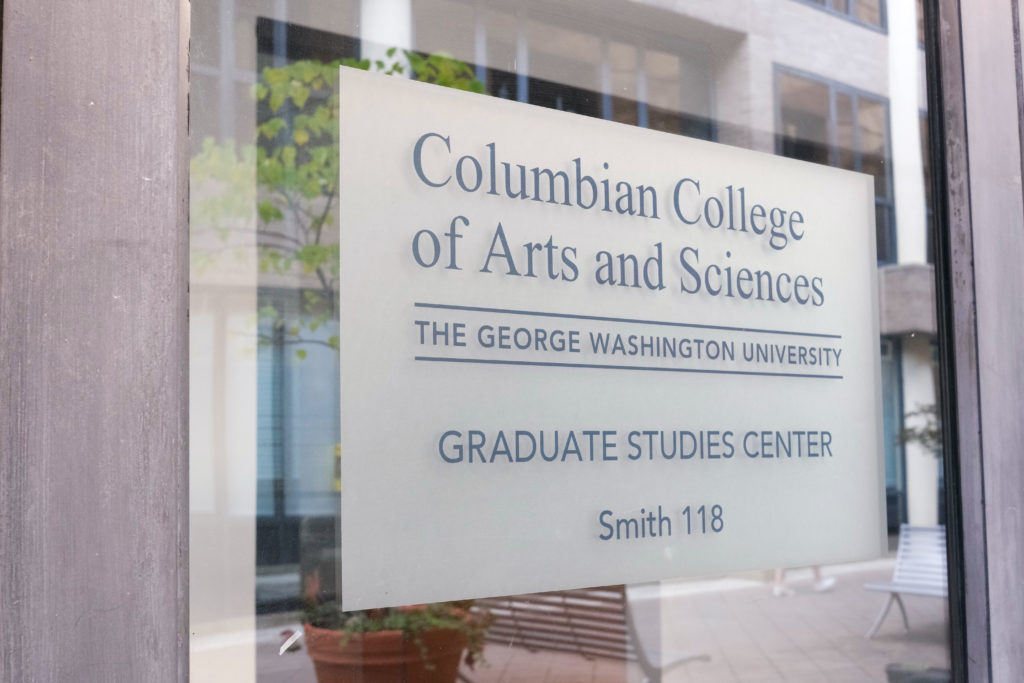The Columbian College of Arts and Sciences increased their research expenditures by 21.5 percent over the past year, according to a University release earlier this month.
CCAS faculty spent a record-high $19.7 million grant dollars in 2023, with more than 151 submitted research proposals and 139 faculty members as lead researchers on projects, according to the release. The release states that organizations like the National Science Foundation, a federal organization to support engineering and sciences, gave 13 professors more than $250,000 each in funding.
“These numbers are reflective of the research success of our faculty and our work as a preeminent research institution,” CCAS Dean Paul Wahlbeck said in the release.
Two School of Media and Public Affairs researchers received more than $2.9 million in funding. Rebekah Tromble, the director of the Institute for Data, Democracy & Politics and an associate professor at the School of Media and Public Affairs, has received almost $2.7 million from the NSF since 2021 to continue her project on creating new strategies for journalists facing online harassment. Last year, the Walton Family Foundation granted professor Frank Sesno $250,000 for Planet Forward, a group encouraging student environmental journalism.
Four professors from the department of biological sciences earned more than $3 million from the NSF during the past fiscal year for their projects. The NSF granted Carly Jordan, an associate professor of biology, $1.5 million in January to study the impacts of Course-Based Undergraduate Research Experiences (CUREs) on student success and the growth of a skilled STEM workforce, according to the release.
Gustavo Hormiga, a professor of biology, earned $499,294 from the NSF to continue his work on onychophoran, or velvet worm, evolution and the socioecological impacts of their evolutionary radiation on the Caribbean, according to the release. The NSF gave professors Arnaud Martin, who is researching the functionality and molecular makeup of silk, and Leon Grayfer, who is researching antifungal defenses of amphibian skin, funding for their projects at $655,390 and $415,550, respectively.
Two physics professors received more than $950,000 in funding earlier this year, according to the release. Sylvain Guiriec, an assistant professor in physics, received $395,061 from NASA to support his work on a soft gamma-ray survey telescope, according to the release.
The University of Tennessee awarded physics professor Neil Johnson $561,857 in February to research the emergence of cultural authorities across social media platforms, the release states.
The Mellon Foundation, the largest funder for the arts and humanities in the nation, gave Maria Frawley, a professor of English, a grant of $487,000 in December 2022 to support her project aimed at disability justice and empowering marginalized communities through stories. Frawley plans to work with public-facing organizations over the next three years to create accurate narratives of the disabled community, the release states.
The Simons Foundation, aimed at supporting and expanding mathematics and the basic sciences, awarded Gabriela Rosenblau, an assistant professor in cognitive neuroscience, $493,938 at the end of 2022 to develop a mechanism to help explain the relationship between two-symptom dimensions of autism spectrum disorder, according to the release.
The NSF gave researchers Chet Sherwood from anthropology, Yonatan Lupu from political science and Adelina Voutchkova from chemistry more than $1 million for their individual projects earlier this year, the release states.





